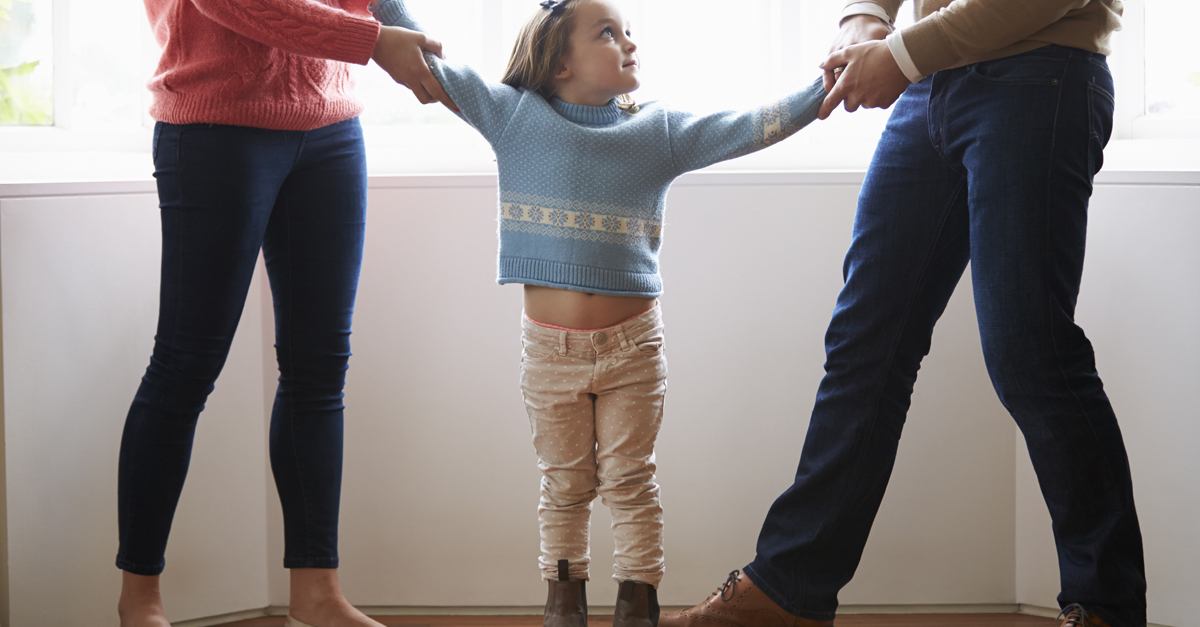Guard and joint custody of children in divorces

Guard and joint custody of children in divorces.
Article 92 of the Civil Code
In its section 5, article 92 Civil Code deals with shared guardianship and custody and to this end establishes:
“The shared custody of the children will be agreed when the parents request it in the regulatory agreement proposal or when reach this agreement during the course of the procedure. The Judge, when agreeing to joint custody and after justifying his decision, will adopt the appropriate precautions for effective compliance with the established custody regime, trying not to separate the siblings.”
The extensive article that I consider unnecessary to reproduce verbatim in its following sections (nine in total) regulates the procedure based on a series of circumstances that must be assessed by the judge taking into account a joint examination of the evidence carried out ( intervention by the Public Prosecutor, hearing minors with sufficient judgment, normally always those who have reached the age of 12, parents’ statement, specialist reports, that is, the psychotechnical – psychosocial reports, etc.) and adds two more aspects:
A perfectly logical one is to exclude from custody the parent who may have committed criminal acts (gender violence, causes criminal offenses that affect the moral-sexual integrity of minors or the other parent…)
And another, in my opinion more controversial due to the difficulty of proof involved, such as agreeing on shared custody and custody at the request of only one of the parents< /strong>, although, yes, with a favorable report from the Public Prosecutor, if it is understood that in this way the minor can be favored, that is, they can be protected.
In short, joint guardianship and custody of children is imposed as the least traumatic measure in divorce legal proceedings always considering the interest of minors as a fundamental asset worthy of protection.
It is true that each case is a world; a particular world that each one lives in her own way. Generalizing is easy and going into details is tremendously complicated because broken families live their experience based on a thousand circumstances that only the protagonists know about.
For this reason, the work of the Judge when making a decision in this regard is complex and that is why the aforementioned article tries to harmonize a series of factors that make that decision fairer. decision, as I just pointed out.
Among these tests there is a particularly delicate one: hearing the minor. The latter, which in judicial jargon is called exploration of the minor, will always take place when the minor is at least 12 years old as it is considered to be an age in which the formation of every person ( disabilities aside) acquires a degree of maturity that must be taken into account when discussing issues as important as the one in question.
It is true that it is more and more frequent that these explorations have very young children as protagonists. The question is rhetorical but the solution is complex Who do you love more, mom or dad?
That it is a position –that of the minor– that is freely formed and has not been induced by any pressure from the parents is something fundamental to be assessed by the Judge who, in the end, and in the end he is the one who has the last word.
Precisely because of the difficulties involved in a decision of this type (even when joint custody is agreed upon) is why the law contemplates the assessment of that plurality of tests to which I referred before.
For this guardianship and custody to be shared, it must be taken into account -and this is what the most recent jurisprudence states- that it does not lead to a drastic alteration in the life of the minor.
The proximity of the homes to the school, the flexibility of visiting hours and days for the parent who does not have them with them at that time, the non-separation of siblings , the very lifestyle to which the little ones (or not so little ones) have been accustomed are determining factors without forgetting the own responsibility of the parents who must strive to agree on that lifestyle and that education , the integral formation in short, of the children.
Without this amalgamation of elements it is very difficult to make the decision to share custody and custody because it could negatively affect the development itself, all the levels, of minors whose future could be marked by erroneous decisions that are difficult to solve over time.
It is not my purpose in these lines to delve into other aspects that, however, are to some extent frequent in the behavior of parents. I am referring in particular to flattery, pampering, gifts and preferential treatment towards the child that could imply discrimination with respect to the other parent.
Who has not heard that when they are with dad or mom, the child goes on excursions, goes to the movies, is allowed to go out with his friends until hours that are not recommended , if he becomes infatuated with the latest electronic game, do they buy it for him, the latest outfit…?
It is a way of attracting the minor in order to distance oneself from the other parent and even, I know, sometimes assuming an economic expense above the family possibilities.< /p>
I will deal with this at another time, but let’s not forget that it is one more component of the difficulty involved in making decisions about the care and custody of especially vulnerable beings.



















